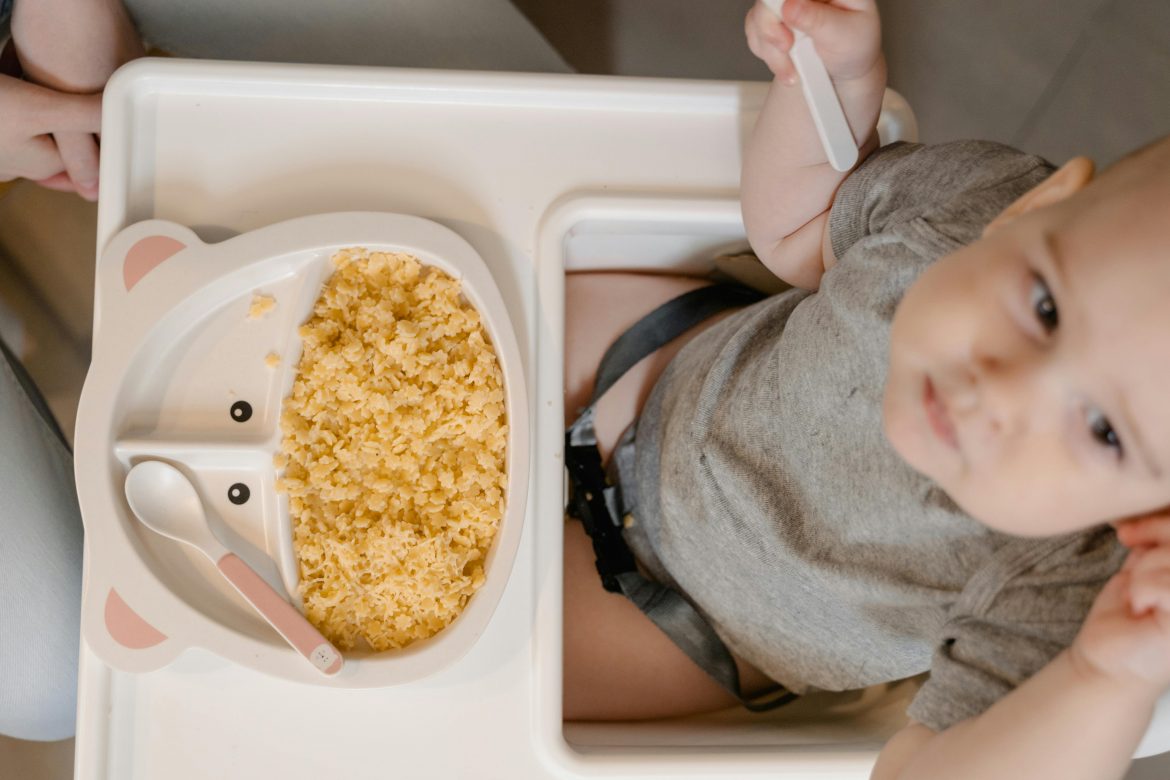When you first introduce solids to your baby, it’s usually easy to keep things clean because they aren’t very mobile yet. However, as the months go by, they will start swiping the spoon and blowing raspberries into their food, which can quickly become a mess for everyone, writes Jen Spiro.
This can be overwhelming and letting them get messy might seem like more work than it’s worth. Some parents feel that allowing their children to sit with food all over them, even during meals, is neglectful. But I encourage you to embrace the mess! Let them get food on their hands, in their hair, and all over their face—and try not to make any disgusted faces while they’re doing it.
Here are four good reasons why:
1. Powerful sensory play
Mealtimes with babies are more than just about eating. They also provide their first experience with active sensory play.
Babies are born with five times as many nerves in the brain devoted to receiving and organising sensory information compared to those responsible for movement.
This means babies use their senses to explore the world around them. While you can’t let your 7-month-old play in a sandbox or use finger paints because they might eat them, messy textures during mealtime offer meaningful tactile stimulation that helps their brains process and respond to new information. Babies will actively seek out these sensory experiences as part of their curiosity and exploration.
2. Learning how to self-feed
When babies get their hands messy with food, they eventually realise that putting their fingers in their mouth results in food. This revelation helps them understand that they can feed themselves.
Although it may take months before they can spoon-feed themselves, those early tastes from their fingers lay the foundation for this skill and can lead to quicker progress.
This process helps develop fine motor skills as they learn to use their hands and fingers in a controlled manner. If your baby is getting messy but not bringing their hand to their mouth, gently show them how to do it.
3. Preventing tactile defensiveness
Without exposure to different textures, children can become sensitive to new or unfamiliar sensations over time. If you keep your baby very clean during meals, they might find getting messy uncomfortable because it’s a new sensation for them.
While tactile defensiveness is not always learned—some children are naturally tactile defensive—constant wiping and keeping them clean can contribute to discomfort. Allowing them to experience different textures helps prevent this sensitivity.
4. Making it positive
Allowing babies to get messy can make mealtimes more relaxed and enjoyable. Introducing solids should be a positive experience, fostering a healthy relationship between your baby and food. If you’re constantly fighting to keep them clean or trying to pin them down to wipe their face after each bite, mealtime can become stressful for both of you. Aim to make mealtimes a positive and enjoyable experience.
ALSO SEE: Kitchen fun for the school holidays: Quick and easy recipes to make with the kids
Kitchen fun for the school holidays: Quick and easy recipes to make with the kids
Written by Savanna Douglas for Woman&Home.
Featured image: Pexels

